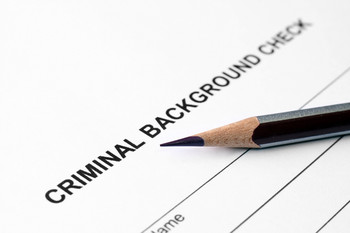Recently, the U.S. Equal Employment Opportunity Commission (EEOC) brought federal lawsuits against car manufacturer BMW and retailer Dollar General. The EEOC alleged that the two companies have been using criminal background checks to unlawfully discriminate against individuals on the basis of race, gender, ethnicity, religion, and disability status.
EEOC v. BMW Manufacturing Co., LLC
On June 11, 2013, the EEOC filed a federal lawsuit on behalf of 69 individuals against car manufacturer BMW. The individuals, logistic services employees at a South Carolina BMW facility, were told to reapply to a new logistics company when their contracts ended. After the new logistics company conducted background checks, it found that 88 individuals had committed criminal offenses in violation of BMW’s hiring policy.
The EEOC alleges that BMW violated Title VII of the Civil Rights Act of 1964 by not assessing each individual’s conviction on a case-by-case basis. Furthermore, each individual had worked at the BMW facility for years without incident prior to the criminal record background check.
EEOC v. Dolgencorp LLC
On June 11, 2013, the EEOC filed a civil complaint against Dollar General in Illinois alleging that the company created a “matrix” in which specific misdemeanor and felony convictions resulted in an automatic rescindment of an employment offer. Dollar General’s matrix did not allow for individual review of applicants who had a conviction for one of the enumerated misdemeanors or felonies.
The EEOC also pointed out that a significantly greater percentage of African-American applicants who were offered conditional employment had their offers rescinded for failing criminal record background checks.
What Do I Need to Know About Criminal Record Background Checks?
When conducting a criminal record background check, your employer must comply with both state and federal law.
Federal Law
The federal law concerning criminal background checks is governed by the EEOC and the Fair Reporting Credit Act (FRCA). The EEOC advises employers to use arrest and conviction records in a manner that is “job related” and “consistent with business necessity.” Employers should consider the following factors when evaluating the background of a potential or current employee:
- The nature of the crime;
- The time elapsed since the commission of the crime; AND
- The nature of the job.
A careful consideration of the aforementioned factors can insulate an employer against a violation of Title VII of the Civil Rights Act of 1964.
The FCRA also requires your potential or current employer to take the following procedural steps when using an outside agency to conduct a criminal background check:
- The employer must give you notice on a separate document that a report may be required;
- The employer must obtain your permission to perform the criminal background check;
- The employer must obtain your permission prior to obtaining any medical information; AND
- The employer must give you specific notice if any friends, neighbors, or associates will be interviewed about your “character, general reputation, personal characteristics, or mode of living.”
California State Law
Employees in California are afforded the basic rights under the federal FCRA. However, applicable state law provides employees in California with additional safeguards. These rights include, but are not limited to, the following:
- A statement of the report’s purpose;
- The name, address, and telephone number of the screening company;
- A summary of your rights to see and copy any report about you; AND
- An option to receive a copy of the report within 3 business days.
Under California state law, an employer may not use an arrest that did not result in a conviction against you. However, since your arrest record is a public document, your employer has access to this information. Thus, it is often difficult to conclusively prove that an employer discriminated against you on the basis of your arrest record.
To learn more about the pre-employment criminal background check process in California, please click here.
Why you should retain the Law Offices of Wallin & Klarich
For over 30 years, the Southern California expungement attorneys at Wallin & Klarich have helped thousands of clients clean up their criminal record. Your reputation is one of the most important things that you can possess. Let the skilled expungement attorneys at Wallin & Klarich help you wipe your slate clean so you can feel confident when being accessed by your current or future potential employer.
Before you start doing Google searches for “where do I get my criminal background check”, call the experienced professionals at Wallin & Klarich. We have a offices conveniently located in Orange County, San Bernardino, Los Angeles, Torrance, Riverside, West Covina, Victorville, Ventura, San Diego, and Sherman Oaks. Please call us today at (888) 280-6839to discuss your case. We will be there when you call.


